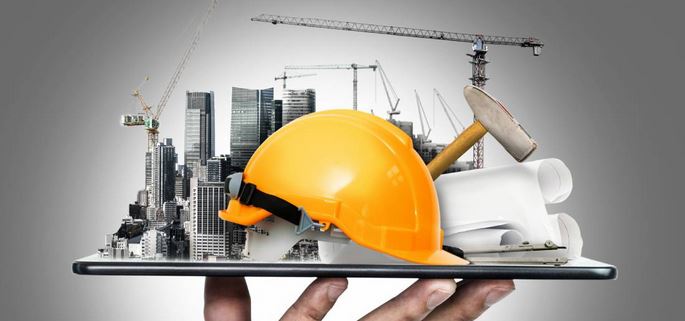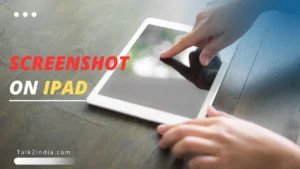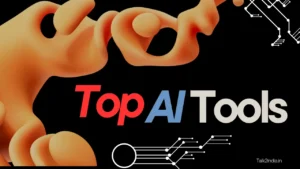New Trending Technology for 2024

As we approach the year 2024, it is clear that technology will continue to play a critical role in shaping our lives. With new advancements emerging every day, it can be overwhelming to keep up with the latest technologies trends. In this article, we will explore some of the most promising and exciting trending technologies that are expected to exploring in 2024.
Introduction
The technology industry has been growing rapidly, and with each passing year, it is evolving at an exponential rate. The year 2024 is expected to be a game-changer in the world of technology. In this section, we will give a brief overview of the technologies that are expected to trend in 2024.
What Are Trending Technologies?
Trending technologies are the newest and most popular technologies that are making a significant impact in various fields, including healthcare, education, manufacturing, and entertainment. These technologies trends are highly innovative and are often designed to solve real-world problems.
Check these Following Latest Trending technologies:
1. Generative AI
Generative AI is one of the most advanced trending technology in india and worldwide which is a type of artificial intelligence technology that can produce various types of content, including text, imagery, audio, and synthetic data. It uses deep learning to create art and can help with creative tasks and generate new ideas, but it cannot replace human creativity. Generative AI will change the way everyone works, streamline processes, make old processes redundant, and pave the way for new processes. However, not all elements of work will (or can) be improved by generative AI. The conflict in the creative industries shows the potential issues. Generative AI can improve problem-solving in the future by 15%, according to NBER. Chunks of data in the future will be generated by AI, according to Gartner, and large organizations will increasingly have outbound messages synthesized, a likely uptick from 20% in 2022 to 30% in 2025.
2. Smarter devices
Smarter devices, also referred to as smart devices, are electronic gadgets that possess advanced computational capabilities and the capacity to communicate with other devices or networks through diverse wireless protocols. These devices can function interactively and autonomously, often equipped with sensors and software that enable them to interact with their surroundings. Examples of smart devices include smartphones, smart speakers, smart thermostats, smart security cameras, and smart lighting. The smart home automation market is anticipating to reach $444.98 billion by 2030, and by the conclusion of 2024, it is projection that there will be over 207 billion devices connected to the Internet of Things (IoT) worldwide.
3. AI Commercialization
The commercialization of artificial intelligence (AI) involves the process of bringing AI technologies to market and making them accessible to businesses and consumers. This encompasses stages such as market research, product development, customer engagement, and predictive analytics. AI commercialization is taking place in several distinct areas: Internet, business, perception, and autonomous systems.
The main enablers of AI commercialization include university spinouts, startups, major tech companies, and public funding bodies. However, there are also notable barriers and challenges in this process. AI-powered algorithms can offer businesses real-time insights into consumer preferences, behavior patterns, and market trends, thus providing a competitive advantage. Despite these benefits, AI commercialization faces challenges such as the heavy reliance on significant amounts of data and ethical considerations including privacy, transparency, and the potential for algorithmic bias.
The commercialization of AI is a rapidly evolving field with the potential to revolutionize various industries and business processes.
4. Sustainable Technology
Sustainable technology is another trending technology that uses digital solutions to drive ESG goals, optimizing costs, energy performance, and asset utilization. It aims to create new business models and products while minimizing environmental impacts and considering human rights. The global green technology market is growing, promoting social responsibility and investing in green technology. It involves a shift to biodegradable materials and is a trending technology.
- Drives ESG goals with digital solutions
- Promotes social responsibility and sustainability
- Optimizes costs, energy performance, and asset utilization
- Growing global green technology market
- Shifts from non-biodegradable to biodegradable materials
5. Datafication
Datafication, the conversion of human tasks into data-powered technology, is omnipresent in modern life. It fuels demand for IT professionals, data scientists, engineers, and managers. Certification in data-related specializations is accessible to tech-savvy individuals. Data jobs prioritize skills over formal qualifications. The surge in data careers emphasizes the need for specialized expertise.
- Ubiquitous datafication shapes modern tasks
- High demand for data professionals
- Accessibility of data-related certifications
- Skills prevail over formal qualifications in data jobs
- Emphasis on specialized expertise in data careers
6. Artificial Intelligence (AI)
Artificial intelligence (AI) has been a buzzword for many years, and it is expected to continue being so in 2024. This is one of the best latest technology trends in 2024 and chatgpt is the common example of this. AI is already transforming many industries, including healthcare, finance, and transportation. In the coming years, AI is expected to be even more ubiquitous, with applications ranging from autonomous vehicles to smart homes.
The Rise of Edge AI
Technology is advancing at an unprecedented rate, and staying up-to-date with the latest innovations is crucial for individuals and businesses alike. In this article, we will explore 15 trending technologies that are shaping our future.
Machine Learning
Machine learning is a subset of AI, and it involves training machines to learn patterns from data. With machine learning, businesses can analyze vast amounts of data, and automate processes.
Natural Language Processing
Natural language processing (NLP) involves training machines to understand and interpret human language. NLP is used in chatbots, virtual assistants, and even in language translation.
Also read : AI Tricks
7. Quantum Computing
Quantum computing is a trending technology in india that uses quantum-mechanical phenomena, such as superposition and entanglement, to perform operations on data. This technology has the potential to revolutionize many industries, including finance, logistics, and drug discovery.
Quantum computing is a field of computing that utilizes the principles of quantum mechanics to process information. Unlike classical computers, which use bits to represent information as either 0 or 1, quantum computers use quantum bits (qubits) to represent information as both 0 and 1 at the same time. This allows quantum computers to perform calculations that are impossible for classical computers to solve in a reasonable amount of time.
Quantum computing is being researched and developed for a variety of applications in various fields, including chemistry, cryptography, and finance. For example, quantum computers could potentially be used to simulate complex chemical reactions, which would have important implications for drug development and materials science. In cryptography, quantum computers could potentially break many of the encryption methods currently used to protect sensitive information. In finance, quantum computing could potentially be used to optimize investment strategies and perform risk analysis.
The Race to Build a Quantum Computer
Several companies, including IBM, Google, and Microsoft, are in a race to build a practical quantum computer. In 2024, we can expect to see significant progress in the development of quantum computers, which could lead to breakthroughs in fields such as cryptography and material science.
8. Blockchain
Blockchain is a decentralized digital ledger that is used to record transactions securely and transparently. This technology has gained significant attention in recent years, with applications ranging from cryptocurrencies to supply chain management.
The Evolution of Blockchain
In 2024, we can expect to see the continued evolution of blockchain technology, with the development of new applications and the integration of blockchain with other technologies, such as AI and the Internet of Things (IoT).
9. Virtual and Augmented Reality
Virtual and augmented reality (VR/AR) technology involves creating immersive digital environments that users can interact with. VR/AR technology is used in gaming, training, and even in healthcare.
Gaming
Gaming is one of the biggest applications of VR/AR technology, allowing users to immerse themselves in virtual worlds.
Healthcare
VR/AR technology is used in healthcare for simulations, patient education, and even in therapy.
10. 5G Technology
5G technology is the latest and the most advanced mobile network technology. It is the fifth-generation technology that aims to offer faster download and upload speeds, lower latency, and more reliable connections than its predecessor 4G. With 5G technology, users can expect to experience lightning-fast download and upload speeds, which means that they can download a full-length movie in seconds rather than minutes.
The low latency of 5G technology is also a significant advantage. This means that the time delay between sending and receiving data is significantly reduced, which is essential for applications that require real-time responses. For instance, doctors can perform remote surgeries using 5G technology, and the low latency ensures that there is no lag between the surgeon’s actions and the robot’s response.
5G technology is expected to revolutionize various industries, including healthcare, manufacturing, and logistics. In healthcare, 5G technology can help doctors perform remote surgeries, monitor patients in real-time, and enable telemedicine. In manufacturing, 5G technology can be used to connect machines and devices, monitor processes in real-time, and improve efficiency.
11. Internet of Things (IoT)
IoT refers to the network of connected devices that can communicate and exchange data. IoT technology is used in smart homes, IOT healthcare, transportation, and more.
Smart Home Technology
Smart home technology involves using IoT devices to automate various functions such as lighting, temperature control, and security.
Industrial IoT
Industrial IoT (IIoT) involves using IoT devices in manufacturing and other industries to improve efficiency, productivity, and safety.
12. Cloud Computing
Cloud computing involves using remote servers to store, manage, and process data. this latest technolgy is used in various industries, including finance, healthcare, and education.
Software as a Service (SaaS)
SaaS involves using cloud computing to deliver software applications to users over the internet.
Platform as a Service (PaaS)
PaaS involves using cloud computing to deliver a platform for developers to build and deploy applications.
13. Robotics
Robotics encompasses designing, building, and operating automated machines capable of tasks through pre-programmed instructions or environmental interaction. Its applications include manufacturing, healthcare, logistics, and emerging fields like space exploration and search and rescue. Robots enhance manufacturing, healthcare, and logistics with automation and efficiency.
Highlights:
- Automation through robotics in manufacturing
- Robotics’ role in healthcare surgeries and rehabilitation
- Logistics automation and supply chain enhancement
- Emerging applications in space exploration
- Robotics’ potential in search and rescue operations
14. Edge Computing
Edge computing, a paradigm processing data near its source, reduces network data transmission and enables faster processing. It’s crucial in IoT for real-time sensor data processing, enhancing decision-making and resource efficiency. In autonomous vehicles, it processes real-time sensor data for instant decision-making. Additionally, it’s valuable for optimizing traffic flow in smart cities.
Highlights:
- Data processing near the source enhances efficiency
- Real-time sensor data processing in IoT
- Instant decision-making in autonomous vehicles
- Potential for infrastructure optimization in smart cities
- Reduced network data transmission
15. Biotechnology
Biotechnology is the use of living organisms or biological systems to develop new technologies. This can include applications in healthcare, agriculture, and even in the energy sector. Biotechnology is a rapidly growing field that has the potential to transform many aspects of our lives.
In healthcare, biotechnology is being used to develop new treatments for diseases, such as gene therapies and immunotherapies. In agriculture, biotechnology is being used to develop crops that are more resistant to pests and disease, as well as to increase crop yields. Biotechnology is also being developed for use in the energy sector, where it can be used to develop biofuels and other renewable energy sources.
16. Renewable Energy
Renewable energy is the generation of energy from sources that are replenished naturally, such as solar, wind, and hydro power. This trending technology is becoming increasingly important as the world looks for ways to reduce its dependence on fossil fuels and transition to a more sustainable energy future.
Solar power involves using photovoltaic cells to convert sunlight into electricity, while wind power involves using wind turbines to generate electricity. Hydro power involves using the energy from flowing water to generate electricity. Other renewable energy sources include geothermal power, which involves using heat from the Earth’s core to generate electricity, and biomass, which involves using organic matter to generate electricity.
List Of Trending Technologies
Here is the complete list of below of technology which are trending in 2024:
| Trending Technology |
|---|
| Generative AI |
| Smarter Devices |
| AI Commercialization |
| Sustainable Technology |
| Datafication |
| Artificial Intelligence (AI) |
| Quantum Computing |
| Blockchain |
| Virtual and Augmented Reality |
| 5G technology |
| Internet of Things (IoT) |
| Cloud Computing |
| Robotics |
| Edge Computing |
| Biotechnology |
| Renewable Energy |
Final Thoughts:
in Conclusion, The world of technology is constantly evolving with new trends and innovations emerging every year. The latest technology trends for 2024 include developments in AI, 5G, edge computing, and blockchain, which have the potential to transform various industries. Staying up-to-date with these trends is important to capitalize on emerging opportunities, but it’s also crucial to be aware of potential risks associated with these technologies. By staying informed and embracing new developments, we can shape a better, more connected world for ourselves and future generations.
FAQ’s
Q: What are the latest technology trends for 2024?
Some of the latest technology trends for 2024 include 5G network technology, Generative AI, Datafication, Smarter Devices, artificial intelligence, blockchain, edge computing, virtual and augmented reality, quantum computing, and Internet of Things (IoT) devices.
Q: Which technology is best in future?
The best technology for the future is a subjective question that depends on various factors and industries. However, some trending technologies show great potential for shaping the future:
- Artificial Intelligence (AI): AI is revolutionizing industries with its ability to automate tasks, analyze vast amounts of data, and make intelligent decisions. It holds promise for advancements in healthcare, autonomous vehicles, customer service, and more.
- Internet of Things (IoT): IoT connects everyday devices to the internet, enabling seamless communication and data exchange. The future of IoT holds smart cities, smart homes, and enhanced efficiency in various sectors.
- 5G Technology: The next-generation 5G technology promises faster internet speeds, low latency, and greater connectivity. It will fuel advancements in communication, virtual reality, augmented reality, and more.
- Blockchain: Blockchain’s decentralized and secure nature makes it ideal for industries like finance, supply chain, and healthcare. It can enhance transparency and efficiency while reducing fraud.
- Biotechnology: Advancements in biotechnology have the potential to revolutionize healthcare, agriculture, and environmental sustainability, with breakthroughs in gene editing, personalized medicine, and more.
- Renewable Energy: As the world moves towards sustainability, renewable energy sources like solar and wind power are gaining importance, reducing dependence on fossil fuels.
- Quantum Computing: Quantum computing’s immense processing power has the potential to solve complex problems that are beyond the reach of classical computers, leading to breakthroughs in various fields.
Q: What is 5G network technology?
5G network technology is the next generation of wireless network technology that promises faster download and upload speeds, lower latency, and improved reliability. It is expected to revolutionize the way we use and interact with technology.
Q: What is artificial intelligence?
Artificial intelligence (AI) refers to the ability of machines and systems to perform tasks that would typically require human intelligence, such as speech recognition, decision-making, and problem-solving. AI is being used in a wide range of industries, including healthcare, finance, and transportation.
Q: What is blockchain?
Blockchain is a distributed ledger technology that enables secure and transparent transactions without the need for intermediaries such as banks. It is most commonly associated with cryptocurrencies such as Bitcoin, but it has potential applications in a wide range of industries.
Q: What is edge computing?
Edge computing refers to the processing of data closer to the source of the data rather than in a centralized location such as a data center. This can result in faster processing times and reduced network latency, making it ideal for applications such as the Internet of Things (IoT) devices and autonomous vehicles.
Q: What are virtual and augmented reality?
Virtual reality (VR) refers to computer-generated simulations that simulate a real environment or situation, while augmented reality (AR) overlays digital information onto the real world. Both technologies have applications in entertainment, education, and industry.
Q: What is quantum computing?
Quantum computing is a type of computing that uses quantum-mechanical phenomena such as superposition and entanglement to perform calculations. It has the potential to revolutionize fields such as cryptography and drug discovery.
Q: What are IoT devices?
IoT devices refer to any device that can connect to the internet and exchange data with other devices. This includes everything from smart home appliances to industrial sensors. IoT devices have the potential to improve efficiency, reduce costs, and enhance safety in a wide range of industries.
Q: What industries are most likely to benefit from these technology trends?
These trending technologies have the potential to benefit a wide range of industries, including healthcare, finance, transportation, manufacturing, and entertainment. However, the specific industries that are most likely to benefit will depend on the specific applications of the technologies in question.





